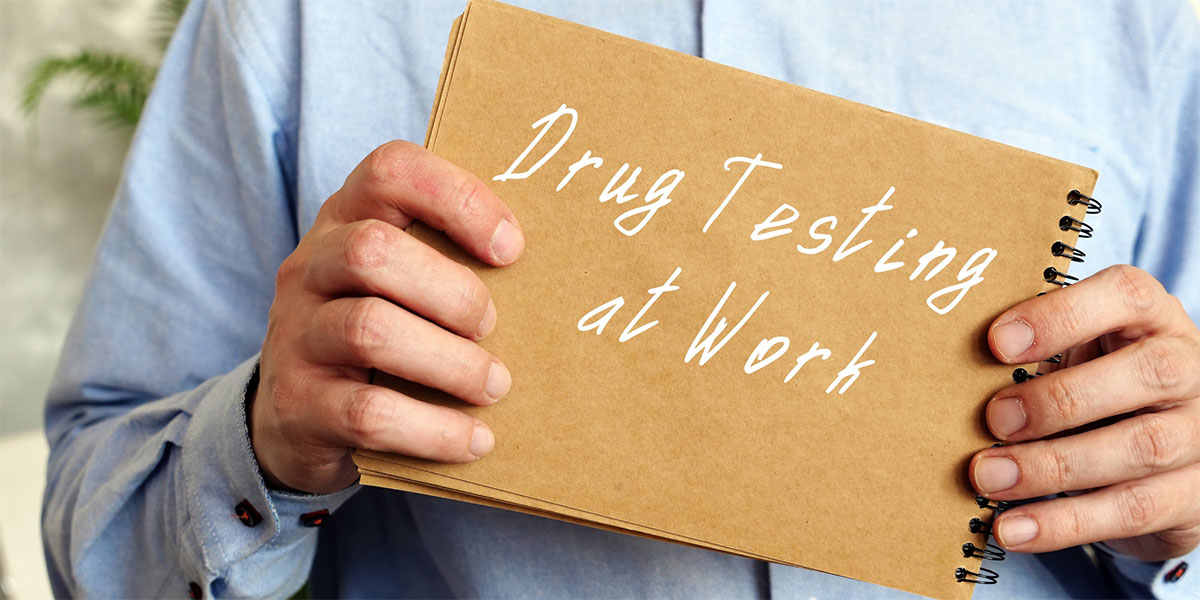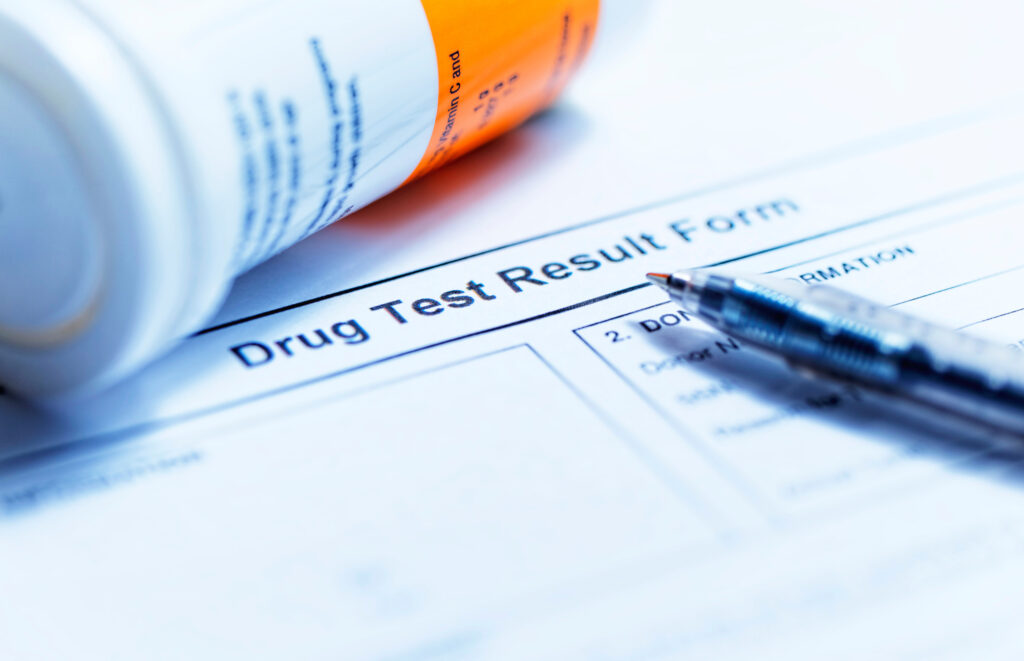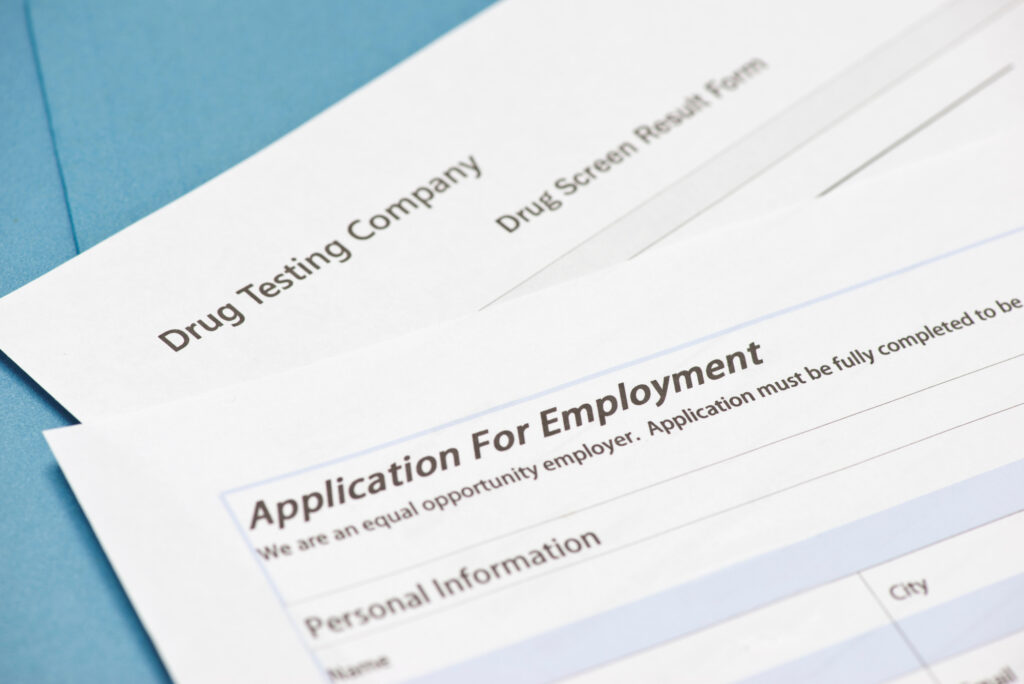For a variety of reasons, you might be wondering, Can I refuse a random drug test at work? Random drug testing is a common practice in many workplaces, especially in industries where safety is a high priority. However, many employees are uncertain about their rights when it comes to refusing these tests. Understanding the legal and professional consequences of refusing a drug test at work can help you make an informed decision if you’re ever faced with this situation.
Start Your Journey By Getting Help Today
Our medical, clinical, and counseling staffs on site are available 24/7.
What Is a Random Drug Test?
A random drug test is an unannounced test conducted by an employer to check if an employee is using illegal drugs or substances that could impair their ability to perform their job. The timing of the test is unpredictable, and the selection process is usually done at random, ensuring that all employees have an equal chance of being tested.
Random drug tests are often conducted in industries such as transportation, healthcare, construction, and other high-risk fields where safety is crucial. The goal is to maintain a safe and productive workplace, reduce accidents, and promote a drug-free environment.
Can You Refuse a Random Drug Test at Work?
Still wondering, Can I refuse a random drug test at work? Legally, you can refuse, but doing so often comes with significant consequences. Employers typically have drug testing policies in place, which employees agree to when they are hired. So, what happens if you refuse a drug test at work? By refusing to comply, you may be in violation of these policies, which can lead to disciplinary action or even termination.
It’s important to note that the consequences of refusing a drug test may vary depending on the company, the industry, and the state in which you work. In some cases, especially in jobs regulated by federal agencies (such as the Department of Transportation), refusal to take a random drug test is treated the same as failing the test.
What Are the Consequences of Refusing a Drug Test?
Refusing a random drug test can have several consequences, depending on your employer’s policies and the nature of your job. Common consequences include:
Termination of Employment
In many companies, refusal to take a random drug test is grounds for immediate termination. Employers view refusal as non-compliance with workplace policies, which can lead to disciplinary action, including losing your job.
Suspension
Some employers may choose to suspend you temporarily if you refuse a drug test. During this suspension, you may be required to undergo counseling or substance abuse testing before returning to work.
Loss of Worker’s Compensation Benefits
If you refuse a random drug test after a workplace injury, you may lose your eligibility for workers’ compensation benefits. Employers may argue that they cannot verify whether the injury was related to drug use without a test result.
Legal Ramifications
In some industries, particularly those regulated by federal law, refusing a drug test can result in legal consequences. For instance, if you hold a commercial driver’s license, refusal to submit to a random drug test may result in the suspension or revocation of your license, making it difficult to continue working in your field.

Can Your Employer Force You to Take a Drug Test?
Can I refuse a drug test at work? Technically, yes. In most cases, your employer cannot physically force you to take a random drug test. However, as mentioned earlier, refusal often leads to negative consequences such as job loss or disciplinary action. The decision to comply or refuse is yours, but it’s important to understand the risks involved.
Certain states have laws protecting employees’ rights when it comes to random drug testing, but these laws vary. For example, some states require that employees be given notice of testing or only allow drug testing in specific situations, like after an accident or based on reasonable suspicion. It’s essential to be aware of your state’s specific regulations regarding drug testing.
What Should You Do if You Are Concerned About a Drug Test?
If you’re concerned about a random drug test at work, consider taking the following steps:
Review Your Company’s Drug Testing Policy
Your employer should have a clear drug testing policy in place. Review the policy to understand your rights and responsibilities, as well as the consequences of refusing a test. If you’re unsure about any aspect of the policy, consult your human resources department for clarification.
Know Your Rights Under State and Federal Law
Drug testing laws vary by state, and certain industries have specific regulations regarding drug testing. Research your state’s laws to know what protections you may have. If you work in an industry regulated by federal law, such as transportation, healthcare, or aviation, familiarize yourself with the applicable federal regulations as well.
Seek Legal Advice
If you believe that a random drug test is being conducted unfairly or that your rights are being violated, consider seeking legal advice. An attorney with experience in employment law can help you understand your options and protect your rights.
Start Your Journey By Getting Help Today
Our medical, clinical, and counseling staffs on site are available 24/7.
What Are Your Options if You Test Positive?
If you test positive on a random drug test, the consequences depend on your employer’s policies and the nature of your job. Some employers may offer an opportunity for rehabilitation or counseling, while others may take immediate disciplinary action.
Rehabilitation Programs
Many companies offer Employee Assistance Programs (EAPs) to help employees struggling with substance abuse. If your test comes back positive, you may be referred to a rehabilitation program, which could help you address any underlying issues and potentially keep your job.
Termination
In some cases, a positive test result may lead to immediate termination. This is especially true in industries where safety is a top priority, such as transportation or construction.
Legal Recourse
If you believe the drug test was conducted improperly or that the result was inaccurate, you may have legal recourse. In some cases, retesting or disputing the results through legal channels may be an option.
How Ocean Ridge Can Help Working Professionals with Rehab
If you’re struggling with substance use and are concerned about how random drug testing could impact your job, Ocean Ridge is here to help. We offer specialized rehab programs designed to support working professionals in maintaining their careers while seeking treatment. The flexible treatment options at our rehab for professionals allow you to get the care you need without putting your job at risk.
At Ocean Ridge, we understand the unique challenges faced by professionals in the workplace. We provide confidential support, helping you recover while preserving your career and reputation. If you or someone you know needs help, contact us today to learn more about our comprehensive programs for working professionals.
Final Thoughts: Can I Refuse a Random Drug Test at Work?
Refusing a random drug test at work is a serious decision that can lead to significant consequences, including termination or suspension. While you have the right to refuse, it’s crucial to understand the potential outcomes and be informed about your legal rights and company policies. If you’re struggling with substance use, seeking help before it affects your job and personal life is essential.
Take the first step toward recovery today. Contact Ocean Ridge to learn more about our confidential rehab programs for working professionals. Our compassionate team is here to support you in overcoming addiction while helping you maintain your career. Don’t wait—reach out now and start your journey toward a healthier, drug-free future.
Start Your Journey By Getting Help Today
Our medical, clinical, and counseling staffs on site are available 24/7.
FAQs About Refusing a Random Drug Test at Work
When are random drug tests typically conducted?
Random drug tests can be conducted at any time without prior notice, but they are often performed in industries where safety is a top priority, such as construction, healthcare, and transportation. Employers may conduct random tests routinely, after workplace accidents, or before assigning employees to safety-sensitive tasks.
Are there legitimate reasons to refuse a drug test?
Yes, there can be legitimate reasons for refusing a drug test. These include concerns over privacy, medical conditions, or religious beliefs. If you believe you have a valid reason for refusing, it’s important to communicate this with your employer and, if needed, provide documentation to support your case. Keep in mind that refusal without proper justification may still result in consequences.
How do you refuse a drug test at work?
When it comes to how to refuse a drug test at work, you should clearly and respectfully inform your employer that you are declining to take the test. Be aware that refusing a drug test can have consequences, such as disciplinary action or even termination, depending on the company’s policies.
What are your rights regarding privacy during a drug test?
Employees have the right to a certain level of privacy during the drug testing process. For example, you can ask for a witness to be present, and there are protocols to ensure the test is conducted in a private and respectful manner. Additionally, employers must handle test results confidentially and follow legal guidelines to protect your privacy.
What happens if you refuse a drug test due to medication use?
If you’re taking prescription medication that could affect the results of a drug test, it’s crucial to inform your employer before the test. Many companies have procedures in place to account for legitimate medical use, and failure to disclose this information could result in a misunderstanding or an inaccurate test result.
Can you dispute the results of a random drug test?
Yes, you can dispute the results of a random drug test if you believe they are inaccurate. If the results are questionable, you may request a retest or challenge the findings through legal channels. It’s important to act quickly and seek legal advice if necessary, especially if you believe there has been an error or mishandling of your sample.
What should you do if you feel pressured to take a drug test?
If you feel pressured or coerced into taking a drug test, you should consider reaching out to your human resources department or a legal representative to discuss your concerns. Being informed of your rights and workplace policies can help you handle the situation appropriately. Filing a formal complaint may also be an option if you believe you’re being treated unfairly.
Is refusing a drug test the same as failing?
In many cases, yes. Employers often treat the refusal to take a random drug test the same as failing the test, particularly in industries regulated by federal law, such as transportation. Refusing may result in the same consequences as testing positive.
How are employees selected for random drug testing?
Employees are typically selected for random drug testing using a computerized random selection process. This ensures that every employee has an equal chance of being chosen, and the testing is conducted without bias or targeting specific individuals.

Brought to you by the Ocean Ridge Team in San Clemente, blending professional expertise with the healing benefits of coastal living.


















